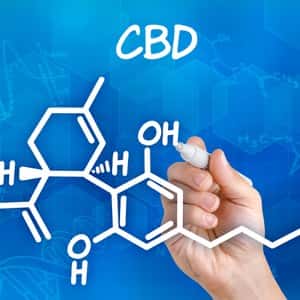
In 2018, the Food and Drug Administration approved the first drug made from Cannabis sativa. Most people know this plant better as marijuana. At that time, the FDA approved cannabidiol under the brand name Epidiolex (EH-peh-DYE-oh-lex) for treating two nearly intractable types of epilepsy in children. One is called Dravet syndrome, while the other is termed Lennox Gastaut syndrome. These specific syndromes are rare. However, GW Pharmaceuticals, the manufacturer, was probably hoping that eventually Epidiolex would prove useful against other maladies. Indeed, in 2020 the agency approved its use for children with seizures due to tuberous sclerosis complex, another rare condition.
Approval of Cannabidiol as Medicine:
The manufacturer conducted three randomized placebo-controlled trials. In them, children with one of these hard-to-treat syndromes took either Epidiolex or placebo. All the youngsters in the studies also took another anticonvulsant drug. The drug does have side effects. Youngsters taking Epidiolex often felt drowsy, acted lethargic, had little appetite and experienced digestive problems such as diarrhea. Some had elevated liver enzymes, rash, infections and trouble sleeping. Still, such side effects pale in comparison to the benefit of controlling hard-to-manage seizures.
The Uncomfortable Status of CBD:
While medical marijuana is legal in a number of states, Epidiolex is legal everywhere in the country. This medication is not a controlled substance.
However, despite its approval of Epidiolex, the FDA is having serious difficulty determining how to regulate other CBD products (US Food and Drug Administration press release, Jan. 26, 2023). Even after approval, the agency continued to classify CBD as a drug of abuse without medical merit (Schedule I). The link to cannabis makes this a politically sensitive issue.
Epidiolex is a far cry from marijuana, however. It may be derived from a natural product, but it has pharmaceutical-grade quality control behind it. Most natural product purveyors don’t have that capacity, so their cannabidiol (CBD) oil is likely to vary somewhat from one batch to the next.
The principal fear with marijuana is that people might abuse it in their enthusiasm for getting high. Epidiolex is not susceptible to that type of abuse, since it contains no compounds such as tetrahydrocannabinol (THC) that can produce a high. In theory, that should be true for other forms of CBD as well. Nonetheless, it is not clear that all are purified adequately to remove any traces of THC.
How Does Epidiolex Work?
Now scientists believe they have discovered how CBD works to control seizures (Neuron, Feb. 13, 2023). When a neuron fires, it sends an electrical pulse to the synapse, or gap, between it and its neighbors. That gap is spanned with the help of neurotransmitters such as glutamate that tell the next cell to fire. Firing is also termed excitation, and too much excitation can lead to seizures.
This study looked at chemicals in rodent brains, but human brains presumably work in a similar manner. A compound called lysophosphatidylinositol (LPI) amplifies the signals traveling between neurons by binding to a protein on the cell membrane. In most cases, this can be helpful. In some cases, though, the interaction between LPI and the protein results in a vicious cycle leading to over-excitation and seizures. CBD blocks that positive feedback loop and interrupts seizures.
What Are the Side Effects of Epidiolex?
Doctors worry about the effects of this medicine on the liver. They have noted that it can raise liver enzymes, especially in children taking other anticonvulsant drugs such as valproate or clobazam. When liver enzymes rise too high, they are signaling the potential for liver injury, and the patient probably needs to stop taking Epidiolex.
The medication can also blunt appetite and cause diarrhea, with weight loss as a consequence. Some youngsters experience stomachache. Drowsiness and fatigue are fairly common side effects. On the other hand, insomnia is also relatively common, along with mood changes such as irritability or agitation. Kids taking Epidiolex were prone to fever and infection, including viral infections and pneumonia.
Citations
- Rosenberg EC et al, "Cannabidiol modulates excitatory-inhibitory ratio to counter hippocampal hyperactivity." Neuron, Feb. 13, 2023. DOI: 10.1016/j.neuron.2023.01.018

